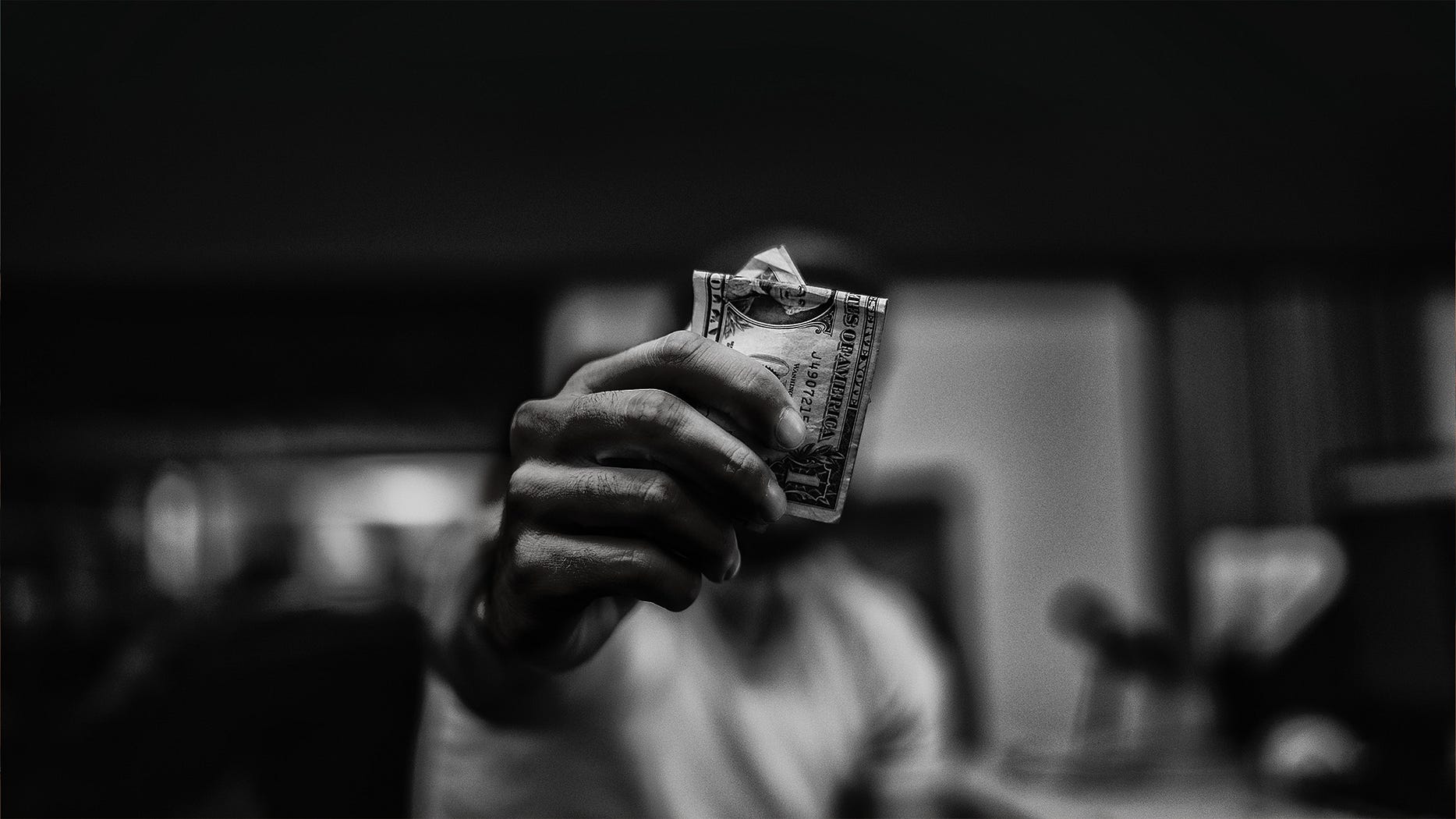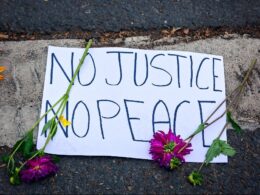Philippians 3:20
“our citizenship is in heaven,
and from it we await a Saviour,
the Lord Jesus Christ”
Key Takeaways (by the editor of the Site)
The Transparency International Corruption Perception Index (CPI) shows little global progress in combating corruption, with Sub-Saharan Africa being the lowest-performing region.
- Despite a high percentage of Christians in some African countries, corruption remains a significant issue, with many Christians being involved.
- The Global Corruption Barometer (GCB) indicates that while corruption is perceived to have increased in Africa, citizens also feel optimistic about making a difference in the fight against corruption.
The author argues that only those with a dual citizenship (heavenly citizenship) can truly make a difference in fighting corruption as they submit to their Lord.
- Christians are considered “heavenites” before “earthlings,” belonging to a heavenly country and a heavenly community (churches) on earth.
- The hope of the coming Savior empowers heavenly citizens to oppose corruption actively and expectantly, quenching the fires of greed and the allure of quick wealth.
The purity of ethics, customs, and standards in the heavenly country serves as a safeguard against corruption if embraced by Christians.
- The hope of a coming Savior-King comforts Christians amidst frustrations caused by corruption, knowing that ultimate justice will be served.
- Embracing heavenly citizenship equips Christians to be both antagonists of corruption and models of heavenly ethos in society.
Advocacy, anti-corruption commissions, and investigative journalism are important in the fight against corruption, but Christians who embrace their dual citizenship can have a significant positive impact on Africa’s struggle with corruption.

Staying Christian When You’re Surrounded By Corruption — TGC Africa
The Gospel Coalition
DANIEL GACHUKI
SEPTEMBER 17, 2021
When the Transparency International released its 2020 Corruption Perception Index (CPI), it was clear that very little progress has been made globally. Even more heart-wrenching is the fact that Sub-Saharan Africa is the lowest performing region on the CPI. It also hosts two of the most corrupt countries in the world. Grim. Right?
In my country, people joke that the populace is 80% Christian, and 90% corrupt. This is not funny. It’s an indictment.
Sadly, many Christians are culprits. The 10th edition of the Global Corruption Barometer (GCB) reveals that while most people in Africa feel corruption has increased in their country, a majority also feel optimistic that they, as citizens, can make a difference in the fight against corruption. But can they?
We can make a real difference in fighting corruption as we submit to our Lord.
If you live in Africa, you don’t need me to enumerate the adverse socio-economic effects of corruption. We have all in one way or another borne the brunt of this vice. Whether we are talking about massive political graft or petty bribes, this is familiar territory for most Africans. While the average citizen in Africa feels they can make a difference, I would contend that only those with a dual citizenship can make a real difference as they submit to their Lord.

Christians Have a Dual Citizenship
No, I am not talking about Africans that hold the citizenship of some less corrupt country in the West. I’m referring to Africans that have a heavenly citizenship.
As Paul puts it, “our citizenship is in heaven, and from it we await a Saviour, the Lord Jesus Christ” (Philippians 3:20).
Or as another inspired author says, “here we have no lasting city, but we seek the city that is to come” (Hebrews 13:14).
Our dual citizenship only terminates in glory when our earthly pilgrimage ends.
Just as Philippi was a colony of Rome on foreign soil, so the Christian community exists as a “colony of heaven” on earth.
These communities are called churches. In other words, Christians are ‘heavenites’ before they are earthlings. We belong to another country, a heavenly country. This is a present, ongoing reality.
We are citizens of heaven now! The reality of our dual citizenship only terminates in glory when our earthly pilgrimage ends.
Paul employed this citizenship metaphor because he knew that the Philippians were proud citizens of Rome.
They dressed like the Romans, spoke their language, and even copied the architecture of Rome. They embraced the customs and standards of Rome, seeing themselves as true citizens.
1.Heavenly Citizens Will Oppose Corruption
2.God Comforts Us Within Corruption

1.Heavenly Citizens Will Oppose Corruption
Therefore, the thrust of Paul’s argument is that our position as citizens of heaven should motivate us to live according to the customs and standards of our heavenly country empowered by our future hope.
The hope of the coming Saviour-the one who will right all wrongs.
The word translated “wait” in Philippians 3:20 means ‘to expect fully’. To wait with great attention.
We do not wait with passive resignation or with disinterested apathy. No, we wait with active eagerness! There is a sense of intensity and alertness to it.
The hope of true glory should quench the fires of greed and the allure of quick wealth.
You see, for the Christian, the hope of the coming age and the reality of our alien citizenship are the much needed safeguards against corruption.
Our heavenly country has purer ethics, customs, and standards. As unashamed heavenly citizens we should wear them proudly, like garlands.
What if every corrupt Christian lived with the awareness that heaven is our true homeland and that’s where our true inheritance lies? Maybe that would quench the fires of greed and the allure of quick wealth.
What if every corrupt Christian lived with the awareness that heaven is our true homeland and that’s where our true inheritance lies?
Maybe that would quench the fires of greed and the allure of quick wealth.

2.God Comforts Us Within Corruption
What about the frustration that comes from inefficient public services in most of our countries?
Well, perhaps the prospect of our coming Saviour-King might quiet our hearts.
There is no injustice we have suffered as Christians due to corrupt systems in our countries that the Saviour-Judge won’t deal with.
He promises: “vengeance is mine; I will repay” (Hebrews 10:30).
This is not resignation. It is sure hope! So, the reality of our heavenly citizenship is a sword that cuts both ways. Giving hope on the one hand and enforcing integrity on the other.
Heavenly citizenship is a sword that cuts both ways: giving hope and enforcing integrity.
Just to be clear, I believe advocacy, anti-corruption commissions, investigative journalism and all such things have their place in fighting corruption.
Christians may even freely participate in policy making efforts in their countries.
Nonetheless, only the Christian who embraces his dual citizenship will be a force to reckon with both as an antagonist of corruption and a model of a heavenly ethos.
… only the Christian who embraces his dual citizenship will be a force to reckon with both as an antagonist of corruption and a model of a heavenly ethos.
Oliver Wendell Holmes feared that “some people are too heavenly minded that they are of no earthly good”.
But I am convinced that more heavenly minded Christians may do Africa a lot of earthly good in her fight against corruption.
Originally published at https://africa.thegospelcoalition.org on September 17, 2021.











